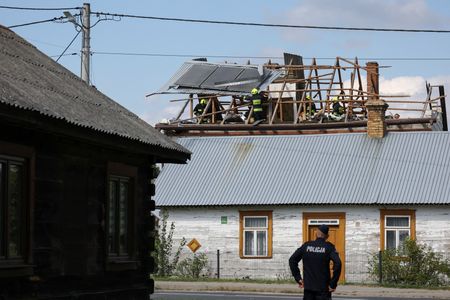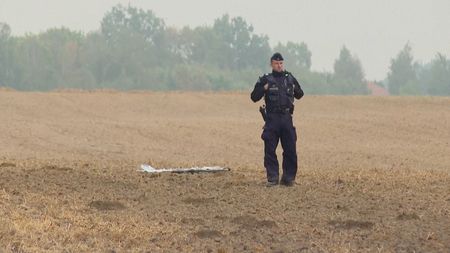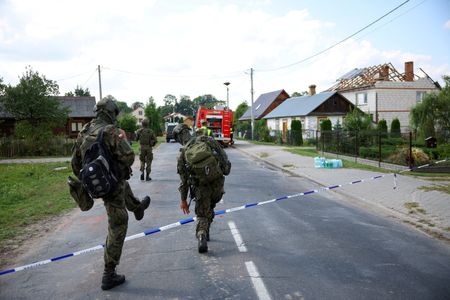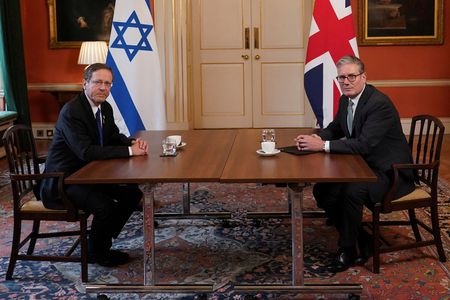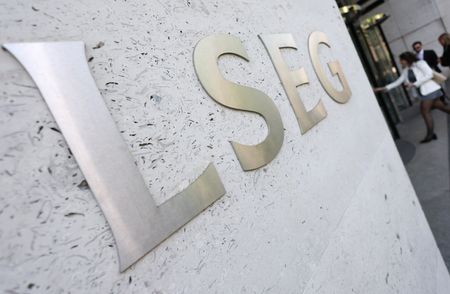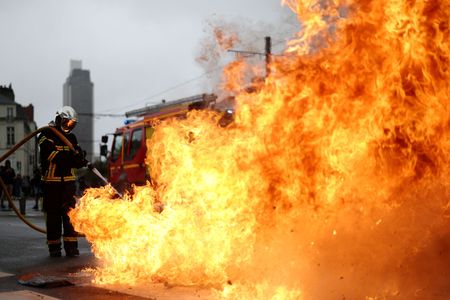MOSCOW (Reuters) -Russian state television played down Poland’s accusation that Moscow had flown drones over the NATO member, focussing instead on alleged saboteurs, Israel’s strike on Qatar, protests in Paris and a regional train called the “nightingale”.
After Poland said it had shot down drones in its airspace, Polish Prime Minister Donald Tusk cast the flights as a provocation by Moscow that he said had pushed the former Warsaw Pact member closest to open conflict since World War Two.
Asked about the drones and Tusk’s remarks, Kremlin spokesman Dmitry Peskov said: “We would not like to comment on it in any way. This is not our responsibility – it is the prerogative of the defence ministry.”
The defence ministry, in a statement more than 13 hours after Warsaw scrambled jets, said it had carried out a massive attack with long-range weapons and drones against the military-industrial complex of western Ukraine – and that it had not intended to attack anything in Poland.
It said that the Russian drones “which allegedly crossed the border with Poland” had a range of not more than 700 km (434 miles).
Russia’s Channel One led its midday news with the detention by the Federal Security Service (FSB) of an alleged saboteur recruited by Ukraine and the success of reconstruction in the Donbas region, which is mostly controlled by Russian forces.
It also carried reports on protests in France, Israel’s strike on Qatar and a four-minute report about the legendary “nightingale” train. Channel One did not mention drones in Poland in that broadcast. State television did not respond to a request for comment.
“It is strange that the incident with Poland is not discussed in our networks at all. Briefly and fragmentally,” said hardline Russian nationalist Alexander Dugin.
The Rossiya 24 news channel led with a Putin meeting with a regional governor and the Israeli strikes on Qatar, but also reported Tusk’s remarks about the drone flights, followed by protests in Paris.
Russian news agencies such as TASS and RIA did prominently report the Kremlin’s reaction to the Polish accusations. Russian newspapers such as Kommersant and leading media sites such as RBK also led on the drones and NATO’s reaction.
Western intelligence agencies say Russia is a master of “hybrid warfare”, and has sought to repeatedly test Western defences and technology. Moscow says the West has unfurled its own hybrid war against Russia.
President Vladimir Putin has repeatedly said that Western European claims that Russia could one day attack NATO members are nonsense aimed at portraying Russia as an enemy. Russia says it has no intention of stoking a war with the U.S.-led alliance.
(Reporting by Reuters; writing by Guy Faulconbridge; Editing by Alex Richardson)

